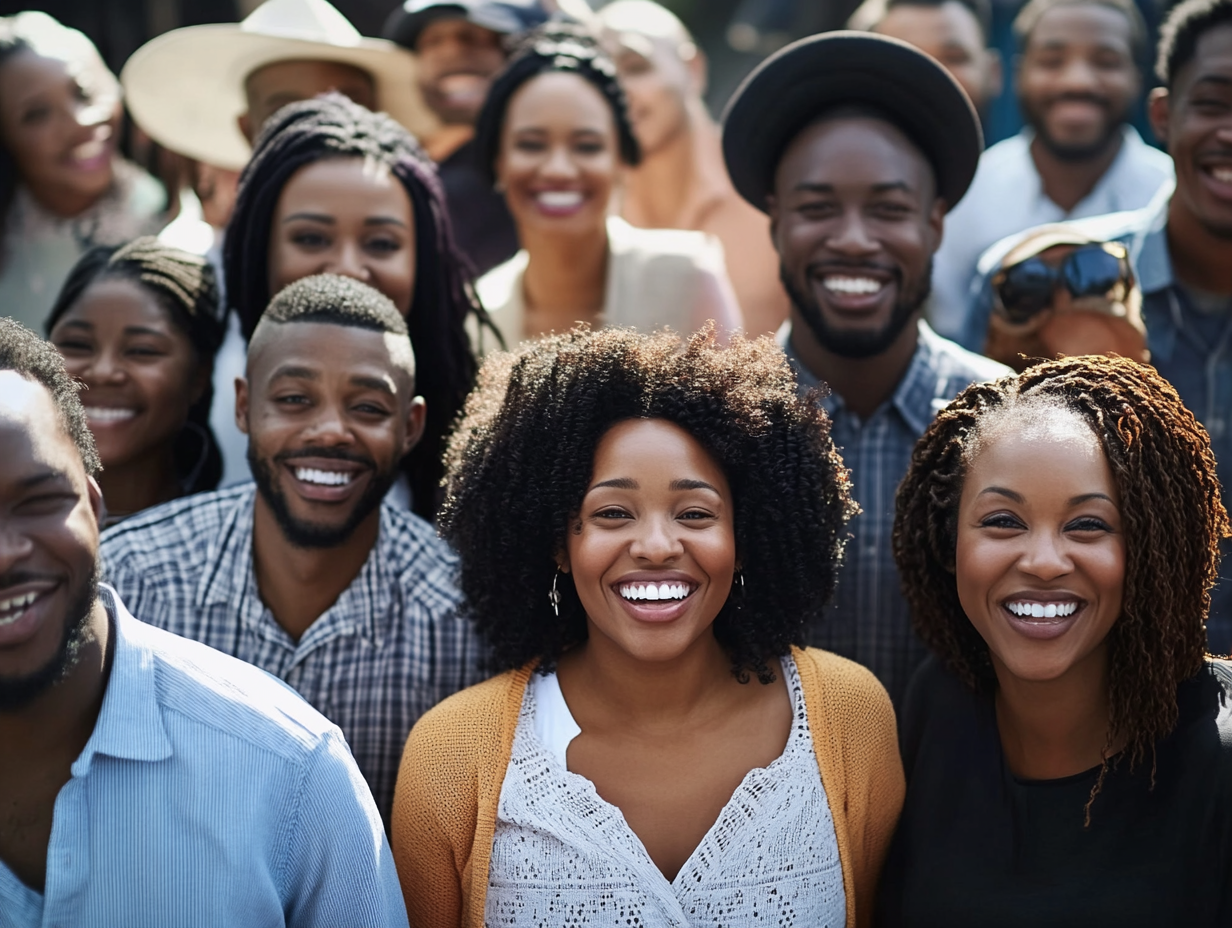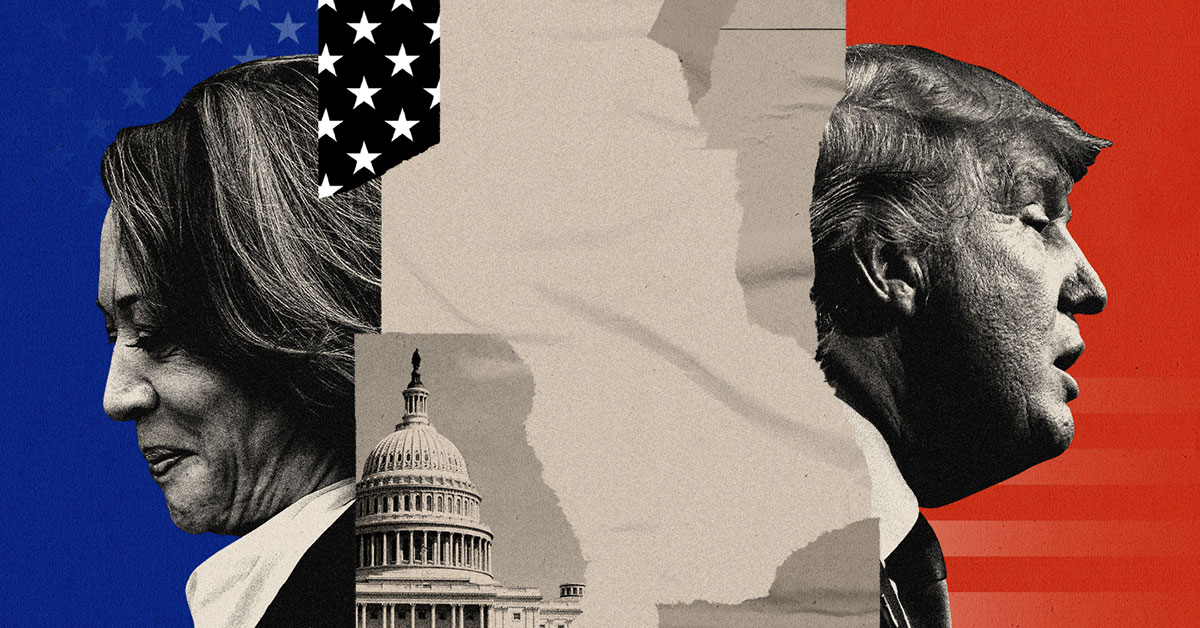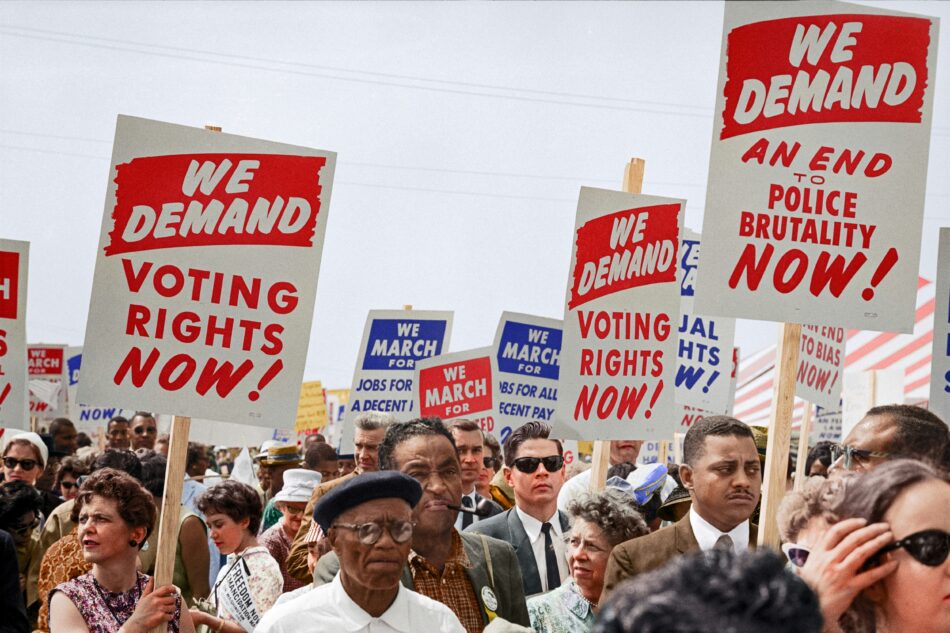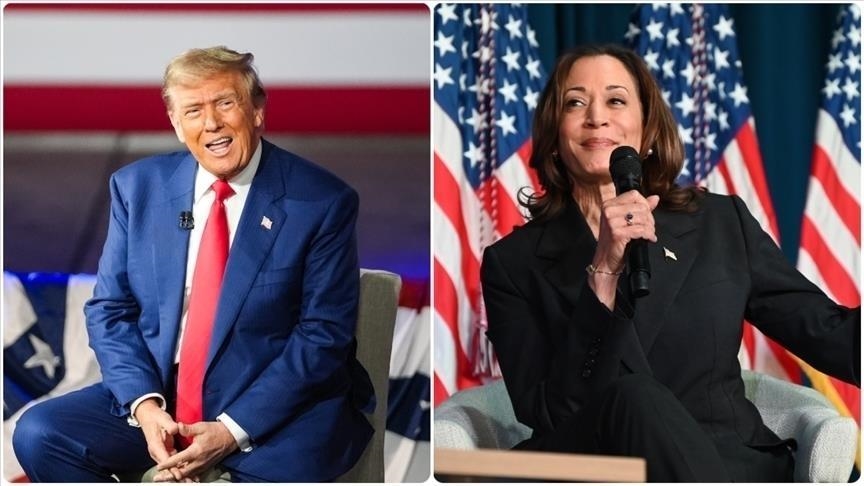- BlackVoter.Org
- Posts
- BLACKVOTER.ORG #138
BLACKVOTER.ORG #138
Of course! Please provide the article you would like me to summarize, and I'll be happy to help.

In "Navigating America’s Civic Hellhole After a Felony Conviction," the article highlights the stark reality faced by millions of Americans with felony records who struggle to regain their voting rights. While some states, like Maine and Vermont, welcome these individuals back into the electoral fold, others impose a web of restrictions that resemble a civic death penalty, effectively excluding them from democratic participation.
In a twist of irony, those with felony convictions can run for federal office but often cannot cast a ballot. The article explores the uneven landscape of voting rights restoration across the nation, revealing a complicated maze of regulations that can trap individuals in a cycle of disenfranchisement.
As the 2024 presidential election approaches, the need for reform is urgent, urging civic activists and affected individuals alike to navigate this challenging terrain for the right to vote.

San Antonio Spurs forward Harrison Barnes is redefining the role of athletes by using his platform for social justice and community engagement. Recently, he visited the San Antonio African American Community Archive and Museum (SAAACAM)—a move not merely for publicity, but a testament to his long-standing commitment to uplift Black history and advocate for vital social issues.
Known for his activism, Barnes has consistently engaged in conversations around police brutality and voter participation, becoming a voice for change long before it became popular among peers. During his visit to SAAACAM, he connected with leaders of the museum to discuss its mission and plans for an expansive new facility.
This visit reflects Barnes' commitment to support and inspire underserved communities, showcasing that he is not just a sports figure, but a true champion for social justice and progress. With each action, he continues to bridge the gap between sports and activism.

As the crucial vice presidential debate approaches, Black voters are gearing up for a pivotal moment that could significantly impact the upcoming election. Scheduled for October 1 at 9 p.
m. on CBS, the showdown between Minnesota Governor Tim Walz and Ohio Senator JD Vance is not merely political theatrics—it's a chance for voters to scrutinize candidates on critical issues like systemic racism, economic disparities, and reproductive rights.
With Walz holding a slight edge in popularity yet facing disillusionment from the Black community, and Vance's hardline policies raising eyebrows, the candidates must effectively address the unique concerns of Black voters. From abortion rights to worker's conditions and immigration policies, the stakes are high.
Black voters carry a legacy of influence that can tip electoral scales, making it essential to stay informed and engaged this election season.

Voters in Warren, Michigan, are buzzing with anticipation as they prepare for the highly anticipated vice presidential debate featuring Tim Walz and JD Vance. With Macomb County often being a decisive region in elections, local residents are eager to hear each candidate’s policies that directly impact their lives.
For many, this debate is a crucial opportunity to understand what’s at stake this November. Voter Michelle voiced concerns about potential changes to her benefits, emphasizing the fear of losing essential support.
Meanwhile, Beverly Sargent seeks clarity on economic improvements, particularly for the African American community. As anticipation builds, voters are ready to tune in, hoping for insights that could shape their decision in what promises to be a tight race.
With both Democratic and Republican supporters firmly behind their candidates, the stakes have never been higher in this pivotal moment for Warren's electorate.

In a bold shift, former Democrat Derron Black is making waves in Jackson County's political scene by running as a Republican for Missouri's 9th State Senate District. With a history of Democratic leadership spanning over 50 years, Black believes the area, primarily Black and struggling, is ripe for change.
Citing unfulfilled promises and stagnation in quality of life, he argues that local Democratic politicians have failed to meet the community's needs. Black appeals to younger Black voters, leveraging his ties to influencers and tapping into conservative values rooted in his upbringing.
However, as he faces a tough battle against incumbent Democrat Barbara Washington, community leaders warn that the Republican party has yet to earn the trust of local voters. The outcome could challenge long-standing voting patterns and reignite conversations around party alignment in historically loyal districts.

As the U.S.
gears up for the pivotal presidential election on November 5, 2024, the race between Vice President Kamala Harris and former President Donald Trump is heating up. This engaging article from Il Sole 24 Ore dives into the intriguing dynamics of the campaign, providing insightful maps and charts that capture how both candidates are faring in popular sentiment across different states.
Backed by data from FinScience, it underscores the importance of state-level delegate votes, recalling past election surprises like Trump's 2016 victory despite losing the popular vote. With a focus on the sectors tied to each candidate and the prevailing negative media sentiment, this analysis helps readers grasp the landscape of the upcoming election.

This article delves into the historical and ongoing dynamics of voter suppression in the Southern United States, illustrating how it is deeply interwoven with racism and economic exploitation. From the aftermath of slavery to modern-day tactics, like gerrymandering and felony disenfranchisement, white elites have consistently employed strategies to undermine Black political power.
Despite significant progress during Reconstruction and the Civil Rights Movement, such gains have often faced severe backlash, highlighting the enduring struggle for racial and economic equity. Today, laws perpetuating voter suppression continue to erode civil rights, aiming to maintain a Southern economic model that profits from a disempowered workforce.
The article emphasizes that breaking this cycle of oppression requires strong, targeted policy actions to protect voting rights and worker power, echoing a historical call to action for equity and justice.

John Amos, the beloved patriarch of the 1970s sitcom "Good Times," has passed away at 84. Known for his role as James Evans Sr.
, Amos broke ground by portraying one of television's first Black two-parent families. His performance earned an Emmy nomination for the iconic miniseries "Roots," where he played adult Kunta Kinte, a transformative role that challenged stereotypes in Hollywood.
Born in Newark, New Jersey, Amos initially pursued a career in social work and professional football before becoming a celebrated actor. While he faced challenges on "Good Times," including his eventual dismissal over creative differences, he remained a significant figure in entertainment, featuring in acclaimed films like "Coming to America.
" Throughout his career, Amos passionately advocated for authentic Black representation in media, leaving behind a legacy that resonates with fans and influences artists across generations. His impactful journey reminds us of the power of authentic storytelling.

As the November 5 election draws near, the Muslim vote, comprising around 3.5 million registered voters, could reshape the race between Vice President Kamala Harris and former President Donald Trump.
A recent CAIR survey reveals Harris leading Trump nearly three-fold in key battleground states, though Jill Stein of the Green Party is a close contender, largely due to her stance on the Gaza conflict. Political expert Bob Stein highlights the critical roles of Michigan and Pennsylvania, noting that a strong turnout from Arab and Muslim Americans could be decisive.
With chatter surrounding the candidates' positions on Israel and Palestine influencing Muslim voters, the potential impact of their votes has candidates on alert. Hussam Ayloush of CAIR warns that neither candidate should take this demographic for granted, as dissatisfaction could lead to protest votes that sway the election outcome.
The stakes are high, and the Muslim community's preferences could truly be the game-changer.

Cal State Fullerton is kicking off an exciting campaign to register new voters as part of the California Ballot Bowl, a state-sponsored competition to encourage civic engagement among college students. Following its victory in 2020 by registering over 2,700 voters, CSUF is ramping up efforts with a range of initiatives.
Professor Scott Spitzer and the Civic Engagement Working Group are at the forefront of this movement, integrating voter registration education into the curriculum and campus events. Students will have easy access to register using a QR code or pre-printed forms.
The university is not only a voting center but also revving up excitement with engaging events like food trucks and discussions on ballot propositions. With youth voter participation on the rise, CSUF aims to empower the next generation of leaders to make their voices heard in democracy—regardless of political affiliation.

In a recent opinion piece, Charles M. Blow critiques Donald Trump's flippant remarks about Vice President Kamala Harris attending a "sorority party.
" Trump belittled Harris for not being present at Prime Minister Netanyahu’s speech, mistakenly branding her engagement with Zeta Phi Beta as trivial. Blow counters that Harris's involvement in Black sororities like Alpha Kappa Alpha and Zeta Phi Beta isn't just social; it's rooted in a rich history of racial empowerment and social justice.
The Divine Nine, comprising historically Black fraternities and sororities, symbolizes resilience and activism against systemic racism. Rather than dismissing these organizations as mere “sorority parties,” Trump should recognize their significant cultural and political influence, especially in an election year.
Blow emphasizes that understanding the history and importance of these groups is crucial for recognizing the broader narrative of Black political engagement.
